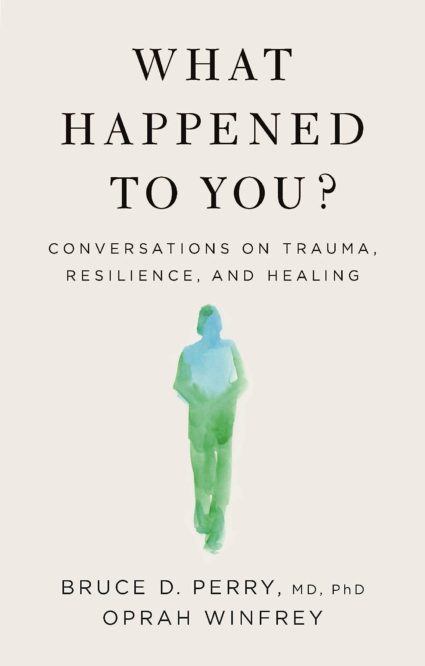In the early 1990s, I was the medical director of a large public mental health system in Houston, Texas. I oversaw the care of thousands of people with mental illness, many of whom were also struggling with substance abuse, housing insecurity, and poverty. I was deeply committed to my work and to the people I served. I believed that with the right combination of medication, therapy, and support, most people with mental illness could recover and lead productive lives. But then something happened that changed my thinking about mental illness and recovery. One day, I was called to the emergency room to consult on a patient who had been brought in by the police. The patient, a young man in his early twenties, was severely agitated and had been hallucinating and attacking people. He had been placed in restraints and was heavily sedated. When I saw him, he was lying on a gurney, moaning and muttering to himself. He was clearly in a great deal of distress.
In October of 2009, I was in a devastating car accident that left me with a traumatic brain injury. I was in a coma for six weeks and spent months in the hospital recovering. I am so grateful to be alive and to have made such a miraculous recovery, but my life has changed dramatically. I now have difficulty with many everyday tasks that used to be easy for me. I have trouble with short-term memory and processing new information. I get easily overwhelmed and exhausted. I am also more sensitive to light and sound than I used to be. Despite all of these challenges, I am determined to live my life to the fullest. I am slowly but surely regaining my independence and learning how to adapt to my new reality. I am grateful for the progress I have made and for the support of my family and friends.
“What Happened to You?” A Conversation with Dr. Bruce Perry and Oprah Winfrey
Bruce Perry is a world-renowned expert on trauma and the brain. In his book, The Boy Who Was Raised as a Dog, he tells the story of his work with children who have experienced trauma. He describes how he uses neurobiology to help these children heal. Perry’s work is based on the idea that the brain is a plastic organ. This means that it can change and grow in response to experiences. When a child experiences trauma, the brain is impacted. Perry uses his knowledge of the brain to help children heal from their experiences. He has worked with children who have been through abuse, neglect, and war. He has also worked with children who have been through natural disasters and terrorist attacks. Perry has seen firsthand how the brain can be changed by trauma. Perry’s work has shown that the brain can heal from trauma. With the right support, children can recover from their experiences and lead healthy, productive lives.
What Happened To You PDF
what happened to youWhat happened to me Bruce Perry?
In the early 1990s, Dr. Bruce Perry was working as a psychiatrist at a hospital in Houston, Texas. He was treating children who had been abused and neglected. These kids had been through some really tough stuff, and Dr. Perry was trying to help them heal. One day, a little girl named Sarah came to see Dr. Perry. Sarah was just six years old, but she had already been through a lot in her short life. She had been abused by her father and had witnessed her mother being murdered. Sarah was a very scared little girl. She was scared of the world and she didn’t trust anyone. But she started to trust Dr. Perry. She started to open up to him and to tell him her story. And then one day, Sarah disappeared. Dr. Perry didn’t know what happened to her. He searched for her, but he couldn’t find her. He wondered if she had run away, or if something worse had happened to her. But then, about a year later, Sarah came back. She walked into Dr. Perry’s office and she was different. She was no longer the scared little girl that he had once known. Sarah had found her way out of the darkness. She had healed. And she told Dr. Perry her story. Sarah had been taken by a man who had been abusing her. But she had escaped and she had run away.
What happened to you summary?
In the early 1990s, Dr. Bruce Perry was working as a psychiatrist at a maximum-security prison. He was constantly confronted with the question of why some people who had experienced similar traumas – such as abuse, neglect, or violence – responded very differently. Some became violent offenders, while others became successful, productive citizens. Dr. Perry began to wonder if there was a way to predict which individuals would respond positively to treatment, and which would not. He began to study the brain development of children who had experienced trauma, and he found that there were certain patterns that predicted positive outcomes. Dr. Perry has since devoted his career to helping traumatized individuals heal. He has developed a model of treatment that has been proven to be effective in helping people recover from trauma. His work has helped countless people rebuild their lives after experiencing traumatic events.
Conclusion
In his blog post, Dr. Bruce D. Perry recounts a disturbing incident from his childhood in which he was attacked and nearly killed by a group of other boys. Perry describes how, even though he was the only one who was physically harmed in the attack, the experience left him feeling traumatized and alone. Perry argues that when we hear about cases of violence, we often focus on the physical injuries sustained by the victims, but we should also be aware of the psychological damage that can be done.





